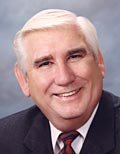If Ventura Fire Department Is So Terrible, Why Don’t Statistics Show It?

“We cannot solve our problems with the same thinking we used when we created them.”
—Albert Einstein

Ventura Fire Department (VFD) is asking the City Council for more money so they can maintain the inertia they’ve had for the past fifty years. The basis for their demands is an operational assessment of Ventura Fire by Emergency Services Consulting International (ESCI). Another multi-million decision based on flawed data faces the City Council. And it appears that they’re in a hurry to make it.
How We Got Here
In 2019, Ventura Fire confronted newly installed City Manager Alex McIntyre with a massive overtime bill. This prompted Mr. McIntyre to recommend a thorough evaluation of VFD’s operations. He told the newspaper he proposed a report to determine if Ventura Fire’s activities were “consistent with contemporary fire services practices.” The Council concurred, and they selected ESCI to do the evaluation.
Things Have Changed For The Ventura Fire Department
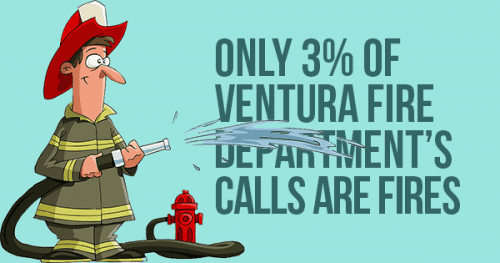 Ventura Fire was initially designed to fight fires. Over time, their duties expanded to include safety inspections, and they built their processes to meet those needs. It was a model that had worked. After all, it was a 100-year-old tradition. Firefighters waited in the firehouse to be dispatched to an emergency.
Ventura Fire was initially designed to fight fires. Over time, their duties expanded to include safety inspections, and they built their processes to meet those needs. It was a model that had worked. After all, it was a 100-year-old tradition. Firefighters waited in the firehouse to be dispatched to an emergency.
The problem for VFD is that the community’s needs changed. The ESCI Operational Assessment of the Ventura Fire Department shows that only 3% of the calls were for fires. The majority, 73%, were for emergency medical service (EMS). Another 15% were “good intent” calls, or what ordinary people call false alarms. Ventura Fire is using an outdated business model to address modern challenges.
What Hasn’t Changed For Ventura Fire
The response time for VFD to respond to a call is in the 90th percentile compared to other fire departments nationally, according to the ESCI study. That’s good news for Ventura citizens.
Confronted with the changed requirements of what Ventura Fire does, one would expect the fire department to rethink its role. Yet, it still clings to the 100-year-old way of doing business. There is no new thinking within the department and no original ideas in the operational assessment done on the department.
The Flaws In The Study
The Ventura Fire Department seized on the ESCI assessment to lobby the City Council for more money. How much money? They’re asking for between $3.9M and $14.9M in the first year, with more in subsequent years. The study outlines several short-term, mid-term and long-term recommendations. (See attachment B)
Close examination of the ESCI report reveals several flaws. First, the ESCI is the consulting service of the International Fire Chiefs Association. The people interviewed to gather data for the assessment were Ventura firefighters. The report is built on fire chiefs asking firefighters what they need, then comparing that to what other fire departments across the nation have. The potential for inherent bias exists in this report.
For instance, when asked in an online survey (page 219) about how city firefighters feel: 75 percent of City Firefighters say more tax money “would allow us to better support fire prevention in our community.” Unsurprisingly, ESCI concluded that Ventura Fire needs more money.
ESCI’s Assessment Lacks Local Context
 Second, the review presents detailed costs associated with each of its recommendations. What it fails to offer are the benefits to citizens that each proposal represents. For instance, the report calls for adding eight more firefighters. What benefit is there to hire eight more firefighters? VFD is already in the 90th percentile in response time. Page 21 of the report says, “VFD call processing time and turnout response time performance are excellent compared to other agencies studied by ESCI.” The actual turnout time is one minute and 21 seconds (81 seconds).
Second, the review presents detailed costs associated with each of its recommendations. What it fails to offer are the benefits to citizens that each proposal represents. For instance, the report calls for adding eight more firefighters. What benefit is there to hire eight more firefighters? VFD is already in the 90th percentile in response time. Page 21 of the report says, “VFD call processing time and turnout response time performance are excellent compared to other agencies studied by ESCI.” The actual turnout time is one minute and 21 seconds (81 seconds).
To support their recommendation for more firefighters, ESCI compares firefighting personnel per 1,000 population based on the 2016 National Fire Protection Association Study for the Western United States. By that measure, ESCI concludes Ventura Fire Department staffing is 38 percent below the Western US median. There is no support for the formula by any data, and it appears to be irrelevant.
Third, the evaluation fails to recognize the number of firefighters added since Measure O passed. In that time, the Ventura Fire Department added twelve sworn officers, bringing its force up to 75—a 19% increase in the workforce. Compare that to Ventura Police (VPD). They added ten sworn officers, bringing the force up to 137—a 7.8% increase.
Fourth, the ESCI recommendations don’t mention the long-term financial impact of adding new firefighters to Ventura’s pension obligation. One estimate is that the city needs to set aside an additional $42,000 a year per firefighter to grow enough over 30 years to cover the pension benefits.
Ventura Fire Department Looks For More Money
 Fifth, ESCI recommends on page 195, “Recommendation 1-G: Explore the option of an additional special measure to support (V)FD operations and to obtain a larger share of Measure O to support recommendations to increase staffing.”
Fifth, ESCI recommends on page 195, “Recommendation 1-G: Explore the option of an additional special measure to support (V)FD operations and to obtain a larger share of Measure O to support recommendations to increase staffing.”
Over time, the purposes of Measure O get fuzzy. None of the current City Councilmembers were on the Council when voters passed Measure O. The Measure O literature specifically said the city would not use the money to supplant existing positions. Yet, the Ventura Fire Department is asking for more employees paid for by Measure O. VFD seems to forget that at the time, Ventura Fire received funds from Measure O to keep Fire Station No. 4 operating. They have also received a 19% increase in firefighters since Measure O.
With the city’s other needs—aging infrastructure, pension liability obligations, homelessness, and more—Ventura Fire’s requests seem self-interested.
Sixth, on page 197, ESCI presents, “Recommendation 2-H: Explore the implementation of a fire services subscription program, where residents pay an annual membership fee for the fire department service.” This recommendation seems insensitive. It wasn’t that long ago that the City of Ventura tried to impose a 9-1-1 fee on all emergency calls. That decision was abruptly reversed, but not before the city collected the fee from several residents and never returned it.
Open Debate On The Issues
The ESCI report is 227 pages long. There is much detail to comprehend. Mayor Sofia Rubalcava introduced a motion to create a subcommittee for a more detailed of the fire department’s report and recommendations.
Jim Friedman objected, saying, “We made it clear we’re not interested in kicking the can down the road. Why a whole layer of discussions and subcommittee? That part I don’t understand.”
Councilwoman Lorrie Brown said she wanted the council to take action on the study and was not in favor of a committee taking months to make a recommendation.
Councilman Mike Johnson said he didn’t want to wait and see if a sales tax gets passed.
“There are things we can do,” Johnson said. “I look forward to really getting into the numbers. I’m not looking forward to making the hard choices, but I’m looking forward to having that discussion with my colleagues.”
It bears mentioning who has received campaign money from the Ventura Fire Department.
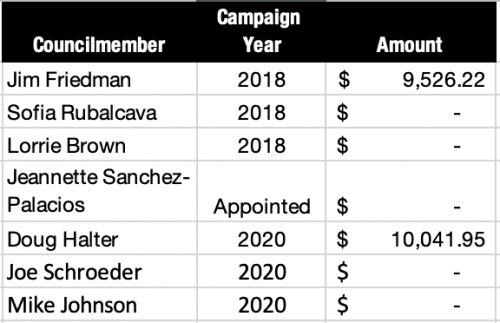
In the end, Mr. Friedman won. There will be no subcommittee to do a thorough evaluation of the recommendations.
Editors Comments
There are too many flaws in the ESCI Operational Assessment of the Ventura Fire Department for the City Council to decide where and how to spend the money. We urge the Council to be extremely skeptical of the data presented. We hope they will see the same flaws and incompleteness in the report that we’ve reported here.
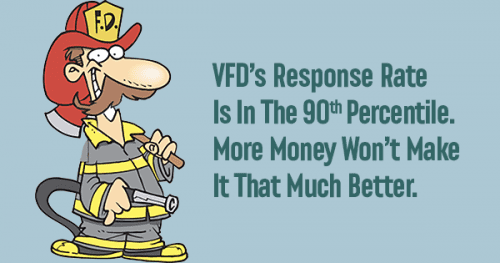 The crucial, objective metric on which residents can judge Ventura Fire is response time. And VFD’s response time is in the 90th percentile. It will be hard to improve on that.
The crucial, objective metric on which residents can judge Ventura Fire is response time. And VFD’s response time is in the 90th percentile. It will be hard to improve on that.
The City Council must realize from this study that Ventura no longer has a Fire Department. It has a medical triage team in red trucks. It’s irresponsible to focus on new fire trucks and adding new fire stations when 73% of their work is emergency medical services, not fighting fires.
To ask citizens to pay an additional tax to support the fire department is untenable. Residents will be paying higher water and wastewater bills, and they’re already paying higher electricity bills to support the Clean Power Alliance.
The notion of a subscription fee for fire department services seems absurd. Ventura already tried a similar idea with the 9-1-1 fee, and citizens rejected it.
Suggesting the Council divert money from Measure O to support the Ventura Fire Department violates the spirit—and the stated purposes—of Measure O. If the city does use Measure O money, it will send a clear message to voters, “All political promises are worthless.” The Council will use Measure O for whatever purposes it wants. Councilmember Friedman will appear prescient when he said, “It’s all green and it’s all spendable.” Measure O and the General Fund are really all the same money.
 In the end, progress will happen if Ventura Fire rethinks the role of VFD. They can no longer rely on a 100-year-old tradition of firefighting. Trying to extort more money from residents to pay to continue doing things the way they’ve always been done is unconscionable. It gives the appearance that Ventura Fire is more interested in fighting change than fighting fires. Citizens should expect more from our fire department. We should expect thoughtful solutions, not ones that throw more money at existing problems.
In the end, progress will happen if Ventura Fire rethinks the role of VFD. They can no longer rely on a 100-year-old tradition of firefighting. Trying to extort more money from residents to pay to continue doing things the way they’ve always been done is unconscionable. It gives the appearance that Ventura Fire is more interested in fighting change than fighting fires. Citizens should expect more from our fire department. We should expect thoughtful solutions, not ones that throw more money at existing problems.
Insist The City Council Seek More Original Solutions
Below you’ll find the photos of our current City Council. Click on any Councilmember’s photo and you’ll open your email program ready to write directly to that Councilmember.
 |
 |
|
 |
 |
|
 |
 |
|
 |
For more information like this, subscribe to our newsletter, Res Publica. Click here to enter your name and email address.

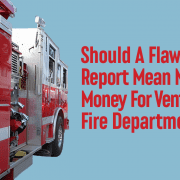


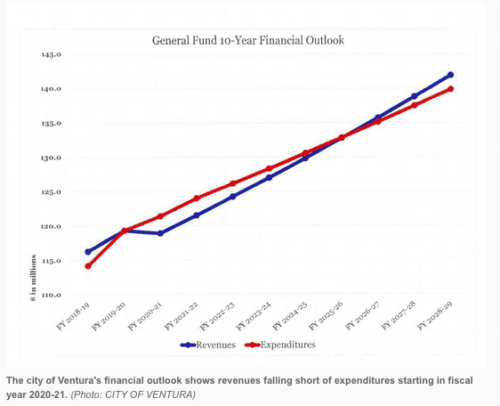
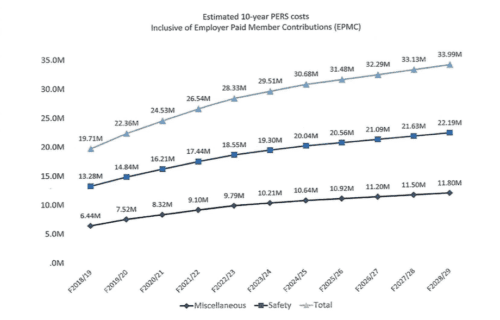
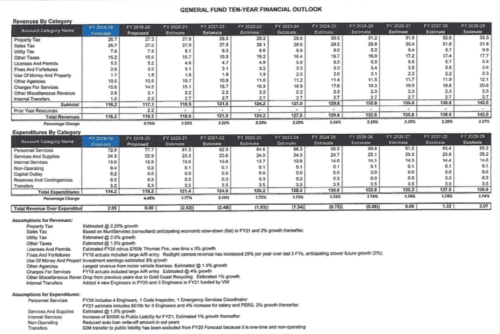
 A second problem is how special interest groups lined up to get their share of Measure O. At the May 20th City Council meeting, Councilmembers Lorrie Brown, Jim Friedman and Mayor Matt LaVere tried to move funds from Measure O to the General Fund for Fire Station No. 4.
A second problem is how special interest groups lined up to get their share of Measure O. At the May 20th City Council meeting, Councilmembers Lorrie Brown, Jim Friedman and Mayor Matt LaVere tried to move funds from Measure O to the General Fund for Fire Station No. 4.  Economic disasters are all around us. There is no reason to think that Ventura is immune to them. The City of Oxnard is preparing to lay off hundreds of employees. They also plan to close a fire station and reduce the number of fire personnel available to respond to emergencies. The Oxnard City Manager says, “We are down to bare bones.” What’s happening in Oxnard is a preview of what could happen in Ventura unless the City Council acts quickly.
Economic disasters are all around us. There is no reason to think that Ventura is immune to them. The City of Oxnard is preparing to lay off hundreds of employees. They also plan to close a fire station and reduce the number of fire personnel available to respond to emergencies. The Oxnard City Manager says, “We are down to bare bones.” What’s happening in Oxnard is a preview of what could happen in Ventura unless the City Council acts quickly.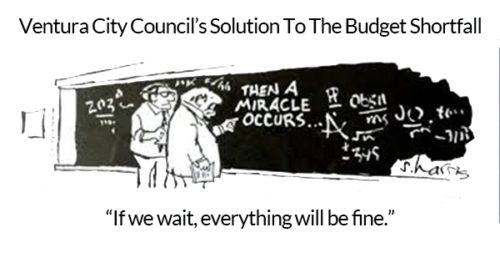 The budgetary crisis is entirely avoidable if the City Council acts now. The solutions are simple, but they are not easy. It requires significant political will and resolve.
The budgetary crisis is entirely avoidable if the City Council acts now. The solutions are simple, but they are not easy. It requires significant political will and resolve.
 Imagine the stimulus to the community of filling the old Star Free-Press building or the Toys-R-Us location would have.
Imagine the stimulus to the community of filling the old Star Free-Press building or the Toys-R-Us location would have.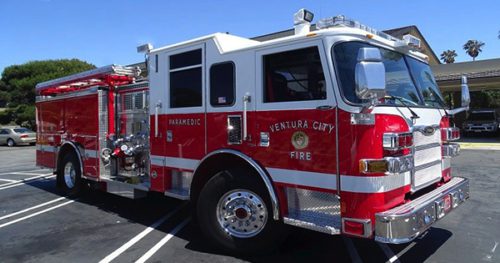 Any change to the Fire Department would likely be unpopular with the public. That makes it a subject considered by Councilmembers, to be too controversial to discuss. The fire department union will become protective of their fellow firefighters and will want to preserve the status quo.
Any change to the Fire Department would likely be unpopular with the public. That makes it a subject considered by Councilmembers, to be too controversial to discuss. The fire department union will become protective of their fellow firefighters and will want to preserve the status quo.




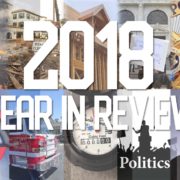


 The City Council waffles on second-story height restrictions for
The City Council waffles on second-story height restrictions for  The City Council instructs Ventura Water to focus on connecting to State Water
The City Council instructs Ventura Water to focus on connecting to State Water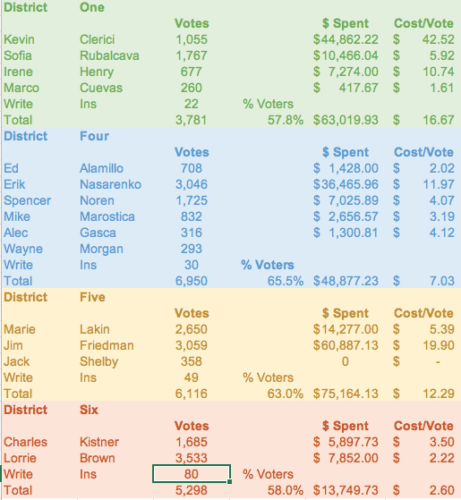




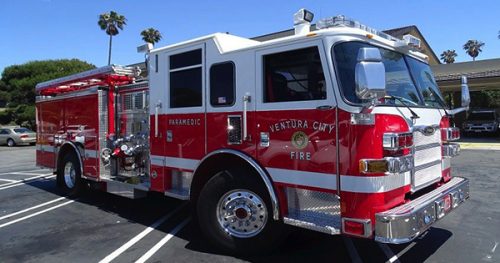





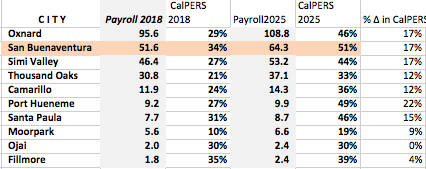 Ventura is already paying 34 cents to CalPERS for every dollar it pays its active employees. In six years, that amount will go up to an unsustainable 51 cents for every dollar of payroll—more than any city in Ventura County. Pensions are already crowding out other essential city services like filling potholes, fixing infrastructure and even hiring more police officers and firefighters.
Ventura is already paying 34 cents to CalPERS for every dollar it pays its active employees. In six years, that amount will go up to an unsustainable 51 cents for every dollar of payroll—more than any city in Ventura County. Pensions are already crowding out other essential city services like filling potholes, fixing infrastructure and even hiring more police officers and firefighters.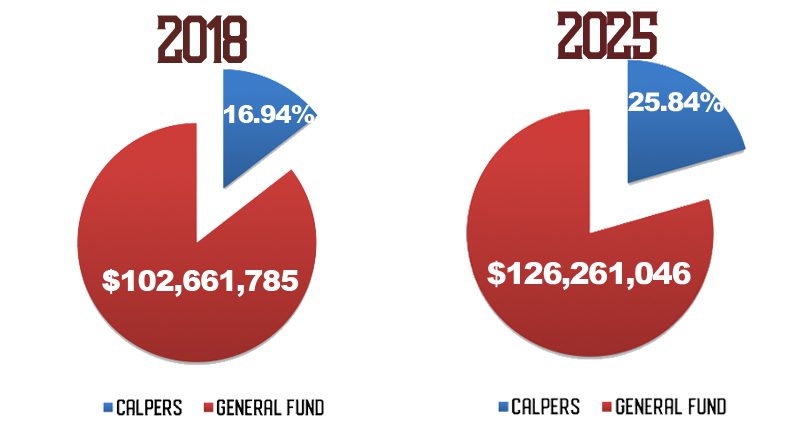
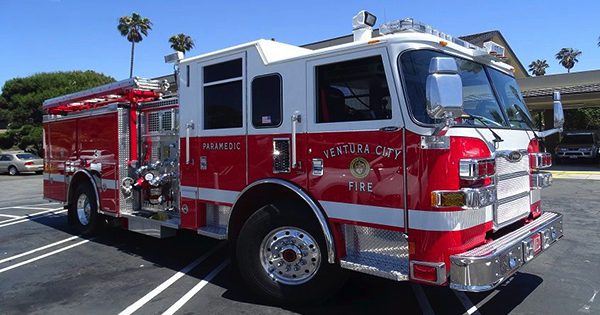

 This November, Ventura has an unprecedented opportunity to tell the City Council, “No more new spending.” There are three open seats on the Council in this November’s election.
This November, Ventura has an unprecedented opportunity to tell the City Council, “No more new spending.” There are three open seats on the Council in this November’s election.